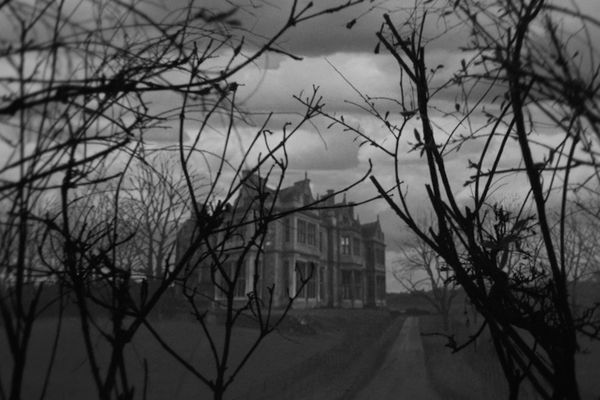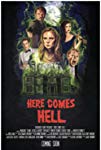Eye For Film >> Movies >> Here Comes Hell (2018) Film Review
Here Comes Hell
Reviewed by: Jennie Kermode

A remote country manor which has seen better days. Dark mutterings about its former inhabitant. A gathering of old friends with bitter rivalries simmering just below the surface. What could really make this party go with a bang? How about a séance?
Described as ‘Downton Abbey meets The Evil Dead’, Here Comes Hell is perhaps the most entertaining cinematic romp of the year so far, in any genre. Films structured as parodies are usually doomed to failure. They tend to have little of their own to say, and quickly become wearing when the joke runs thin, but Jack McHenry’s work has been made with both passion and flair. It’s smartly observed and genuinely witty. Whilst its characters may start out as archetypes, some of them develop in unexpected directions. Every performance is perfectly pitched and the sharp-edged dialogue is delivered with great comic timing.

Jessica Webber plays Elizabeth, a solicitor’s secretary out of her element when she’s romanced by rich young thing Freddie (Timothy Renouf), who just happens to be the object of desire for ruthless socialite Christine (Margaret Clunie). She’s still adored by her Texan former fiancé George (Tom Bailey) and it’s her brother (Jasper Britton) who is hosting the party. There’s plenty here to generate tension even without the inadvertent opening of a gateway to Hell, and having to deal with spirits from beyond doesn’t mean that past slights can simply be forgotten.
Though it looks a bit too clean in places to fully convince, McHenry’s efforts at rendering a 1930s shocker in digital black and white are impressive, from the opening shot of the young couple driving down a country road in a sports car to the House Of Usher moment at the end. The performances are suitably stagy without detracting from the characters and great use is made of specially commissioned music. The amazing location also contributes a lot to the atmosphere – sometimes to the point where one worries for the actors’ safety.
The one place where this film substantially differs from its source material is in the representation of its female characters. We see brains exposed but never breasts; there’s not a ripped dress in sight. Far from hiding behind the heroes, both women prove that their toughness extends beyond verbal fencing over dinner, and the shifting way they relate to one another provides the film’s emotional core.
If all this sounds fun but you’re of a delicate sensibility, you may be reassured by the fact it’s black and white. Then again, there’s no shortage of gruesome deaths, with a clever narrative trick allowing some characters to die multiple times. Horror fans will find plenty to entertain them whilst others will reflect that there’s really nothing more horrid than having one’s weekend away spoiled by the presence of the wrong sort of people. If they stop laughing for long enough to notice.
Reviewed on: 02 Mar 2019















